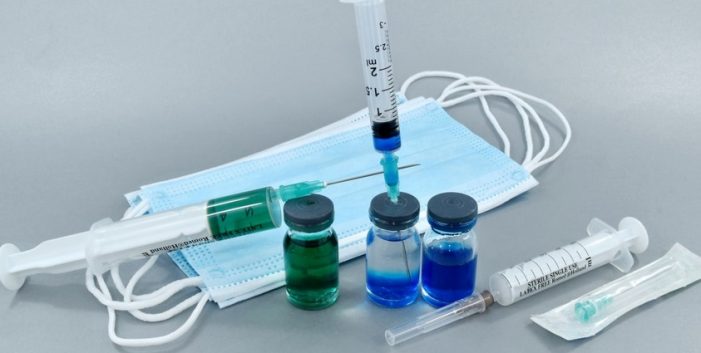Pfizer announced Monday that its COVID-19 vaccine, developed with BioNTech, is highly effective. Early analysis of data from the Phase 3 clinical study shows that the vaccine, BNT162b2, is more than 90% effective.
“Today is a great day for science and humanity,” said Dr. Albert Bourla, Pfizer Chairman and CEO. “The first set of results from our Phase 3 COVID-19 vaccine trial provides the initial evidence of our vaccine’s ability to prevent COVID-19.”
The Phase 3 clinical trial began on July 27 and has included 43,538 participants, 38,955 of whom have received a second dose, according to Pfizer.
According to early analysis of the data, the vaccine has been more than 90% effective for study participants that received two doses of the vaccine scheduled three weeks apart.
“The case split between vaccinated individuals and those who received the placebo indicates a vaccine efficacy rate above 90% at 7 days after the second dose. This means that protection is achieved 28 days after the initiation of the vaccination,” according to Pfizer.
Prof. Ugur Sahin, BioNTech co-founder and CEO, said the two companies will continue to collect data from the trial until a final analysis at 164 confirmed cases within the study sample.
After accumulating two months of safety data, Pfizer and BioNTech can file for Emergency Use Authorization from the Food and Drug Administration (FDA). Pfizer says the safety data will be ready by the third week of November.
However, there are some roadblocks. Because the Phase 3 study is ongoing, additional data could change the study results, and there is not enough data to predict the full efficacy of the vaccine.
“Key information about the vaccine is not yet available,” according to Stat News. “There is no information yet on whether the vaccine prevents severe cases, the type that can cause hospitalization and death. Nor is there any information yet on whether it prevents people from carrying the virus that causes COVID-19, SARS-CoV-2, without symptoms.”
Additionally, the vaccine’s supplies could be limited.
“Based on current projections we expect to produce globally up to 50 million vaccine doses in 2020 and up to 1.3 billion doses in 2021,” according to Pfizer.
Pfizer plans to release additional data in the coming weeks. If approved by the FDA, the vaccine would play a major role in bringing an end to the COVID-19 pandemic.


You left out the part where only 93 people of the 43538 have completed the study. So only 93 people have shown 90% efficacy. That means they still do not know long term side effects of over 43400+ in the study. I sure hope everyone is paying attention to all of the trials for this vaccine. AstraZeneca stopped their trials due to adverse reactions and Moderna had someone die. If you don’t believe it look it up. A good place to start would be the highwire by Del Bigtree. He’s fighting for safe and effective vaccines.
With respect to a vaccine, it doesn’t matter to me who the President is, I won’t be taking it. I saw a local commercial several times this weekend that urged people to get a Flu Shot… wait for it… wait for it… because it can “help fight the Coronavirus”. You’d think that would have been national news months ago… hmmmmm.
Beware the Pharmaceutical Industrial Complex… and don’t forget your face diaper.
J&J and Pfizer and a couple others hate Trump and did a Slow Down until AFTER the Election so as not to help Trump with anything Positive. I knew we would be getting GOOD News about the Vaccine right AFTER the Election.
Just a little foot dragging by Pfizer. Maybe just an additional 80,000 or so additional deaths due to Pfizer’s foot dragging. But local leftists and RINO’s can rejoice and credit the Vaccine to Hiding Biden!!!!
By SCIENTIFIC standards, the test group is too small to draw conclusions. By SCIENTIFIC standards, the length of the study is waaay to short to draw conclusions. By SCIENTIFIC standards, conclusions shouldn’t be drawn until all phases of the study are over.